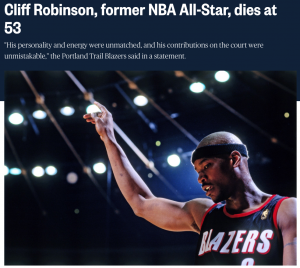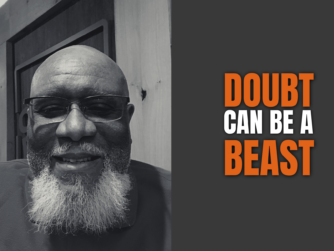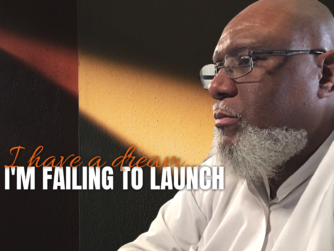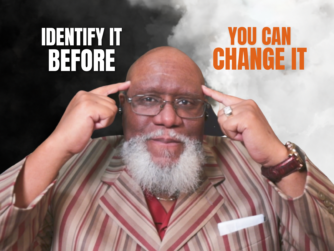Black men in the United States suffer worse health than any other racial group in America.
Black men have the lowest life expectancy and the highest death rate from specific causes, compared to both men and women of other racial and ethnic groups.
Yet, many of the causes of death are avoidable and preventable, if detected and treated early.
What can men learn from the untimely death of Chadwick Boseman? First, let’s separate the man from the myth. Yes I said myth, because black panther is not dead. He lives on, because Hollywood will ensure he does and get someone else to play that role, trust me!
But, the man Chadwick Boseman is dead! Dead from a disease that could have been corrected, if it was caught and mitigated in time.
CDC Statistics
According to CDC vital statistics, next to heart disease, which remains the number one killer among black men, cancer is the second leading cause of death in the United States among black men.
Let me share with you a few other statistics just for perspective purposes:
- 1) Heart disease (23.7%);
- 2) Cancer (20.2%);
- 3) Unintentional injuries (7.9%);
- 4) Homicide (5.0%);
- 5) Stroke (4.9%);
- 6) Diabetes (4.3%);
- 7) Chronic lower respiratory diseases (3.2%):
- 8) Kidney disease (2.6%);
- 9) Septicemia (1.7%); and
- 10) Hypertension (1.6%).
Many of you may be familiar with the actor Chadwick Boseman, who had been diagnosed with colon cancer and passed away on Friday, August 28.
Boseman had never spoken publicly about his diagnosis. However, I remember earlier this year many of us expressed concern when we saw pictures of his dramatic weight loss surface on internet.
I don’t know why, but I always had the feeling that there was something behind his resilient smile, there seem to be some indescribable sadness in his eyes… maybe because he was carrying such a heavy diagnosis all of these years… What a man!
He never mentioned his diagnoses, even though he played leading black roles such as: Marshall, James Brown and Jackie Robinson, in addition to Black Panther; so maybe that is what many believe made him a black king?
According to data, about 140,000 black men are diagnosed with colon cancer every year and around 50,000 die from the deadly disease.

Death of Clifford Robinson
You may not be aware that on the very next day; Saturday, former Portland Trail Blazers star Clifford Robinson also died Saturday at age 53, who had a stroke 2½ years earlier and slipped into a coma the previous week before Chadwick’s death.
I say this because stroke is the number 5 cause of death among black men. And being a stroke survivor I know that cause very well.
Black men are not only at greater risk for heart disease, stroke and colon cancer they also have less chances of survival. This is because by the time men are diagnosed, the cancer is already in an advanced stage, which makes them more likely to die from it.
But, what you may not know is that you may not have to let colon cancer or any of the other causes kill you!
If I can, I’d life to offer a little deeper insight into why I think colon cancer deaths happen. Colon cancer is a development of polyps in the colon, where some are benign, but some end up being malignant. But, it can be treated if detected in the earlier stages.
The detection is usually done through a colonoscopy, which involves inserting a tiny camera through the rectum. I know this sounds painful, but you’re usually under anesthesia when it happens.
I could go on and on about all the risks, challenges, barriers and etc., with healthcare; or the lack thereof among blacks.
Cancer is the second leading cause of death in the United States among black men.
CDC
Get Screened
But, I want to get to the heart of the matter quickly today.
One of the major factors of black men dying from colon cancer and many other diseases is lack of screening. Despite the huge risk, only a fraction of black men are likely to get tested or screened for the cancer.
If you’re 40 and above and if I asked you right now if you’ve had a colonoscopy yet, what would your answer be? Many of you would probably say no!
Boseman’s death at age 43 made him two years younger than 45, the age at which the American Cancer Society recommends black men start getting screened for colon cancer.
However, with all the bad foods, fatty diets and meat products we consume, men can’t wait that long to be tested! A majority of black males often refuse to undergo colonoscopy.
Because poor knowledge and a lack of awareness about colon cancer keep black men from early screening and detection, a move that could potentially save your live.
Early detection is key, and according to the Centers for Disease Control and Prevention (CDC), colon cancer may not display any symptoms at all, which is why experts stress the importance of screenings.
Symptoms may include blood in stool, stomach pain, aches, or cramps that don’t go away and unexplained weight loss.
Not paying attention to your body and not taking care of your body, your life can really end sooner than you want it to.
Ask for Help
Remember, tomorrow is not promised, so take care of the one life you have today.
So my brothers, please schedule your screening today! Make an appointment with your doctor despite your age, because if you’re a black man, 40 years and older, especially in poor or at risk health your doctor will test you, if you demand it.
Brothers, I want you to know that you do not have to suffer in silence and go through health issues in fear or embarrassment. We need to educate one another concerning these oftentimes silent killers and be there for one another if diagnosed with any of the causes I mentioned.
If you find yourself in the midst of cancer or other health related malady today, ask for help and support from your community and let them be there for you.
Don’t suffer alone or in silence. There is hope and death does not have to be your early end.
I hope this writing and video was helpful to you today and that you’re going to share it with a man in your life.
Copyright 2020 B.A. Ingram. All Rights Reserved. All quotes are the Authors and are not to be used without permission.
Photo by National Cancer Institute on Unsplash







